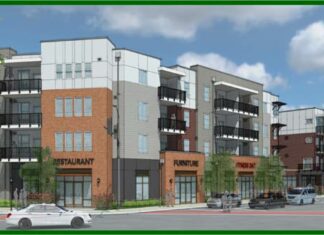Roseville, Calif. – In 2006, elected officials gave the California Air Resources Board (CARB) virtually unchecked authority to implement AB 32, which aims to reduce carbon emissions to 1990 levels by the year 2020.
The legislation, including the controversial cap-and-trade program, expires in four years.
Some lawmakers have already introduced legislation, such as SB 32, to extend CARB’s authority. However, instead of rushing to renew this controversial and expensive program, we should slow down and come up with a more affordable solution that benefits all of California.
Cap-and-trade limits carbon emissions by energy producers and raises money through the sale of carbon credits. It’s supposed to fight global warming by making it more expensive to use carbon-based fuels. But that’s not the only thing it does.
It turns out the program has made life more expensive for Californians as well.
Since being given the authority, CARB has implemented a steady stream of costly regulations, such as the “hidden gas tax.” Experts agree that this hidden tax costs California drivers at least 10 cents more in added cost per gallon of gasoline. They also acknowledge CARB’s “low-carbon fuel standard” could add another 13 cents per gallon by 2020.
Motorists might be open to paying these costs if the money actually went towards repairing our crumbling roads. Instead it seems the cap-and-trade program has become a multi-billion dollar slush fund for politicians’ pet projects.
Perhaps intentionally, CARB still hasn’t come up with a systematic way to determine if cap-and-trade dollars are really doing anything to help lower emissions levels.
There is little consensus on what constitutes a “green project.” When pushed for answers, CARB officials deflect. This obscurity allows the governor to direct cap-and-trade funds towards his $71 billion high-speed rail project, which is actually increasing the state’s carbon emissions.
Some cap-and-trade funds were supposed to go towards programs for low-income communities that want to invest in renewable energy. Because CARB is largely free to do as it wishes, there’s no real way of knowing if these grants are reaching their intended targets. That’s a kick in a gut to the less fortunate who supported AB 32.
Like you, I want breathable air and clean parks for our children and grandchildren. But do CARB’s unelected bureaucrats really need this much power? Government mandates can be very expensive and inevitably the costs are passed down to consumers. Not everyone can afford a Tesla.
Why can’t we use cap-and-trade funds to solve real problems like emission-causing traffic congestion? Think about it: What pollutes more, a car that reaches its destination quickly or one that’s stuck idling on a freeway for an extra 20 minutes?
A state appeals court has already put the future of cap-and-trade in doubt. And many questions remain, such as how to spend the billions collected and whether or not the program is really an illegal tax. Some doubt CARB has the right to collect the money at all.
There’s also a fierce debate over whether or not regulators can extend the program without the Legislature’s permission. The Legislature’s chief counsel doesn’t think so.
California is already a leader on climate change, and our current law doesn’t expire until 2020. Perhaps we should leave lawmaking to our elected officials, not abdicate power to unelected regulators. Rather than rush an extension, let’s invite the public to join the discussion. Californians deserve clean air, but they also deserve affordable energy-and to know how their dollars are being spent.
George Runner is an elected member of the California State Board of Equalization.
(21+ years strong)
Welcome to the brighter side!
Get in front of local customers! 24/7 (365)























